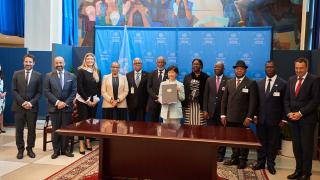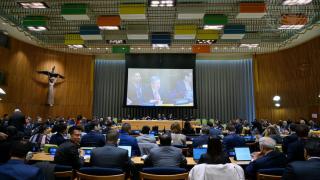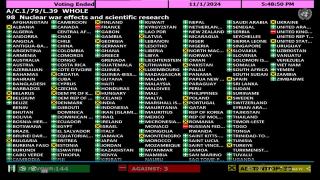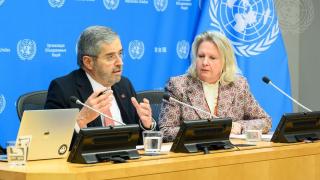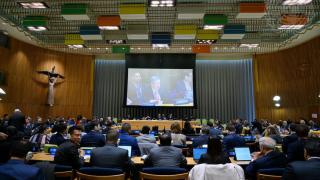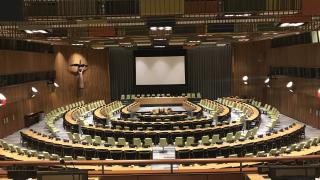Campaign for a strong Arms Trade Treaty
The under-regulated arms trade has devastating consequences for people around the globe. With the black market in small arms and light weapons estimated at $1billion, a significant proportion of this suffering is caused by illicit arms trading.
On 2 April 2013 the UN General Assembly adopted the Arms Trade Treaty (ATT), designed to impose tighter controls on transfers of weapons and munitions worldwide. The Treaty was ratified by the UK in April 2014 and entered into force on 24 December 2014.
For the Treaty to have maximum impact, major exporters like the UK need to set an example and implement the ATT to a high standard.
There are growing concerns, however, that the UK's conduct with regards to arms sales to states with bad human rights records is undermining the Treaty.
Campaign to Stop Killer Robots
Over the past decade, the expanded use of unmanned armed vehicles has dramatically changed warfare, bringing with it new humanitarian and legal challenges. Now, rapid advances in technology are resulting in efforts to provide greater combat autonomy to machines.
These robotic weapons would be able to choose and fire on targets on their own, without any human intervention. This capability would pose a fundamental challenge to the protection of civilians and to compliance with international human rights and humanitarian law.
UNA-UK is a member of the Campaign to Stop Killer Robots – an international coalition of non-governmental organisations calling for a pre-emptive ban on lethal autonomous robotics (LARs). The campaign urges all states to:
- Place a national moratorium on lethal autonomous robotics
- Declare – unilaterally and through multilateral fora – a commitment to abide by international humanitarian law and international human rights law in all activities surrounding robotic weapons and put in place and implement rigorous processes to ensure compliance at all stages of development
- Commit to being as transparent as possible about internal weapons review processes
- Participate in international debate and intergovernmental dialogue on the issue of LARs and be prepared to exchange best practices with other States


